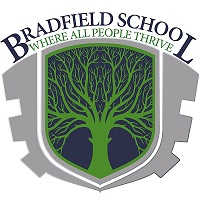Modern Foreign Languages: French and Spanish
What is our curriculum intention and purpose
Students are curious and open-minded about other cultures and have the skills and resilience to communicate in a foreign language.
The MFL department gives students at Bradfield School the opportunity to enhance their communication skills, linguistic understanding, and cultural openness through studying French. Students will leave us with speaking, listening, reading, writing, and translation skills, as well as an enhanced understanding of France and the Francophone world.
What is our learning journey?
How is the curriculum sequenced?
We have a spiral curriculum, meaning that students revisit topics several times, building on their knowledge with each iteration. In Y7, for example, when covering “free time”, students learn how to give opinions on their hobbies. In Y8, the same topic builds in complexity, adding different tenses. This builds student confidence and capability, allowing them to make the necessary progress to achieve highly at GCSE, A level, and beyond.
Our curriculum is aligned with the Pearson Dynamo textbook series at KS3, and Oxford University Press AQA textbook at KS4.
What will my child experience in a typical Modern Foreign Language lesson?
French lessons at Bradfield begin with “do now” tasks that recap and revise previous learning. Students practice new vocabulary and grammatical structures through choral repetition and games, before moving on to listening, reading, speaking, and writing tasks. The type of tasks will vary from lesson to lesson, so that all skills are covered over the course of a topic. Students will have opportunities to contribute to the lesson through answering targeted questions, group discussion, and use of mini whiteboards as well as written work in books.
How do we assess progress?
- All students are assessed with TSAT Assessments/mock exams - twice in all year groups. Marks will be recorded centrally on SharePoint or on Bromcom to inform data input and reports.
- TSAT assessments consist entirely of GCSE-style questions, appropriately simplified for each year group.
- Teachers check learner understanding and feedback and adapt throughout all lessons. They will use different methods, including:
- use of mini whiteboards
- verbal feedback and checks on understanding
- discussion around Learning Intentions and Success Criteria throughout the lesson
- differentiated questioning
How do we extend and enrich our curriculum?
Students are exposed to a variety of cultural content from the French-speaking world. This includes exposure to facts about French-speaking countries, studying festivals such as the carnival in Martinique, listening to authentic French-language music, and learning about traditional foods.
What higher education and career opportunities can this subject lead to?
Languages can be studied on their own, or combined with other degrees such as Law, Business Management, History, and English. This can include a year of study abroad.
Language skills are a huge advantage in many careers, and you don’t always have to be fully “fluent” for it to be useful! Some sectors that regularly need linguists include:
- Law
- Marketing
- Government and diplomacy
- National intelligence and security
- Business and management consulting
- Charity sector and museums
- Travel and tourism
- Journalism
- Education
- Translation and Interpreting
How can I support my child in Modern Foreign Languages?
Regular vocabulary revision is really important for retention. If you are able to ensure that they complete revision homework set on Satchel One, this will really benefit your child.
Additionally, students all have knowledge organisers with the vocabulary from the whole year. Spending some short sessions (10-15 minute) going over older topics using look-cover-write-check, or another form of self-testing will really help embed this knowledge in their long-term memory. If you are able to help them organise this ongoing revision and perhaps test them as they go, it will make a big difference to their progress and their confidence.
Key Stage 3 French
| Year 7 | Year 8 | Year 9 |
|
|
|
Key Stage 4 French
| Year 10 | Year 11 |
|
|
Key Stage 4 Spanish
| Year 10 | Year 11 |
|
|
